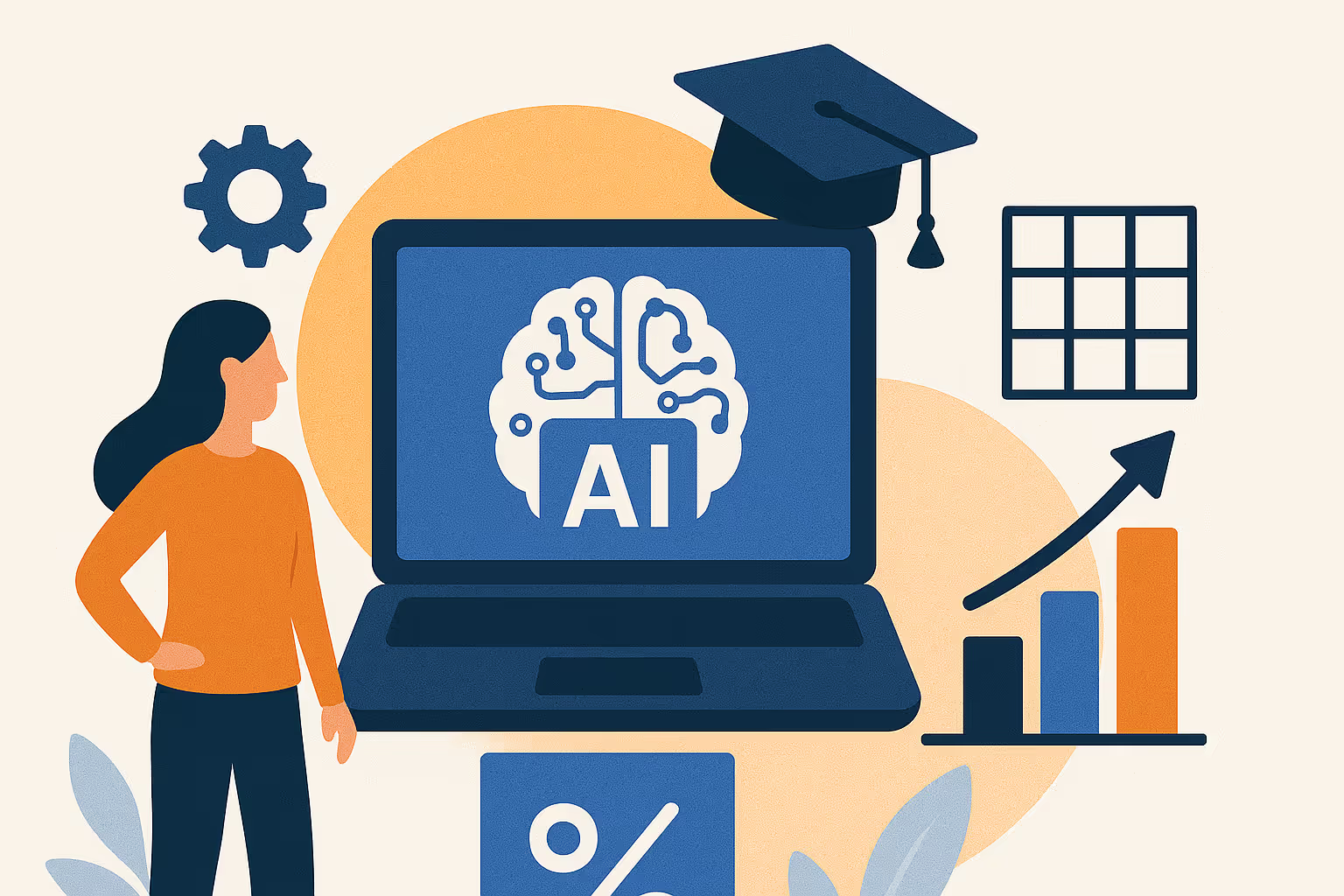About the Blog
Key Takeaways
- AI-driven search assistants like ChatGPT and Google SGE are reshaping how prospective students explore colleges and programs.
- Traditional SEO strategies must evolve as AI-generated recommendations replace standard search rankings.
- Universities can optimize content for AI models by focusing on structured data, conversational queries, and authoritative expertise.
- Higher ed institutions can “train” AI models by ensuring their content is consistently relevant, factually accurate, and widely cited.
How AI-Powered Search Assistants Are Changing College Research
For years, students researching colleges have relied on Google search results, ranking lists, and university websites to gather information. However, AI-powered search assistants—like ChatGPT, Google’s Search Generative Experience (SGE), and Bing AI—are transforming the way students discover and evaluate higher education options.
Instead of typing “best business schools in the U.S.” into Google and sifting through multiple websites, students can now ask AI, “Which business schools have the best job placement rates?” and receive direct, AI-curated recommendations based on aggregated online data. These AI assistants don’t just present a list of links; they summarize key insights, highlight comparisons, and even suggest specific programs tailored to a student’s interests.
This shift means that universities can no longer rely solely on traditional SEO tactics to appear in search results. Instead, they need to understand how AI assistants source and prioritize information—and adjust their content strategies accordingly.
Optimizing Higher Ed Content for AI-Generated Recommendations
With AI search models influencing college discovery, universities must rethink their content optimization strategies. Unlike traditional SEO, which focuses on keyword density and backlinks, AI-driven search prioritizes contextual relevance, authority, and structured data.
1. Create Conversational and Intent-Driven Content
AI assistants mimic natural conversation, so universities should optimize their content to align with how students ask questions. Instead of just targeting “top engineering schools”, institutions should develop content that answers real student queries, such as:
- “What are the best engineering schools for robotics?”
- “Which colleges have the best financial aid for international students?”
- “What career opportunities do data science graduates have?”
By creating blog posts, FAQ pages, and interactive tools that directly answer these types of queries, universities increase their chances of being referenced in AI-generated responses.
2. Prioritize Structured Data and Schema Markup
AI search models pull data from structured sources to provide more accurate recommendations. Universities should implement schema markup to help AI understand and categorize their content. Key structured data types for higher ed include:
- Course and program details (curriculum, duration, tuition)
- Accreditation and rankings
- Student testimonials and career outcomes
- Admission deadlines and application processes
By properly tagging and structuring this information, universities increase their visibility in AI-generated responses.
3. Establish Content Authority with Expertise and Citations
AI search models favor reliable, authoritative sources when generating answers. Universities can build authority by:
- Publishing research-backed content (whitepapers, case studies, faculty insights)
- Getting featured in high-authority publications (Inside Higher Ed, The Chronicle of Higher Education)
- Encouraging backlinks from trusted sources (partner institutions, government websites, industry organizations)
AI models learn from citation frequency—so the more a university’s content is referenced across credible sources, the more likely it is to be included in AI-generated recommendations.
How Universities Can "Train" AI Models to Surface Their Programs
AI search engines don’t just pull information from the web randomly—they are trained on specific datasets and adjust their responses based on what they learn over time. Universities can actively influence these AI models by ensuring their content is consistently relevant, structured, and widely cited.
1. Ensure AI Can Access Your Content
Some websites block AI crawlers (like ChatGPT’s web browsing function), preventing them from indexing content. Universities should review their robots.txt file and ensure that AI models can analyze and incorporate their content into responses.
2. Increase Institutional Mentions Across Platforms
AI models prioritize sources that appear frequently and consistently across the web. Universities should:
- Contribute expert insights to industry discussions (via LinkedIn, Medium, or guest articles)
- Engage in AI-friendly Q&A platforms (Quora, Reddit, and Google’s AI-generated search snippets)
- Ensure Wikipedia and authoritative directories list accurate details about their programs
The more AI models encounter a university’s information, the more likely they are to recommend it in student searches.
3. Leverage AI-Powered Content Strategies
Institutions can also use AI tools to refine their own content strategies. For example:
- AI-driven keyword research tools (like SEMrush or Ahrefs) can identify the most relevant student search queries.
- Chatbots and AI-based FAQ pages can capture real-time student questions, helping universities understand common concerns and optimize their content accordingly.
- Personalized AI chat assistants (such as Student Hub by Element451) can help institutions provide customized recommendations and collect insights on student needs.
By harnessing AI strategically, universities can boost their visibility in AI-generated search results and improve student engagement.
The Future of College Discovery: Adapting to AI Search
As AI-driven search assistants become the go-to resource for student research, universities must evolve their digital strategies to stay relevant. The key to success lies in:
- Understanding how AI models source and prioritize information
- Optimizing content for conversational queries and structured data
- Building institutional authority through citations and trusted content
- Actively training AI models by increasing online visibility and mentions
The institutions that adapt to this new search landscape will gain a competitive edge—ensuring their programs stay at the forefront of AI-powered student discovery.
Want to stay ahead in higher ed marketing and AI-driven student engagement? Subscribe to Enrollify for the latest insights on enrollment strategies, SEO, and digital transformation.
FAQ:
How is AI changing how students research colleges?
AI-driven search assistants like ChatGPT and Google SGE provide personalized, summarized answers to student queries instead of just listing links. This shifts how students explore colleges, making AI-generated recommendations a key factor in discovery.
How can universities optimize their content for AI-driven search?
Universities should create conversational, intent-based content, use structured data (schema markup), and ensure their content is frequently cited by authoritative sources to increase visibility in AI-generated results.






.avif)



